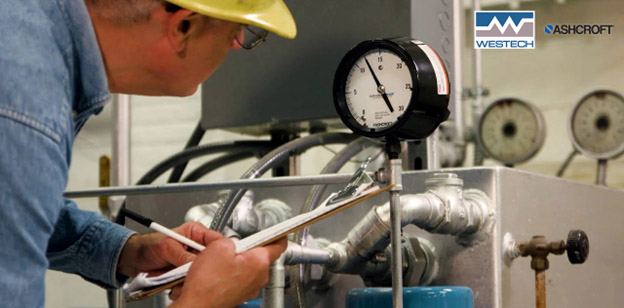
The Critical Role of Pressure Gauges in Industry
Pressure gauges are indispensable in the industrial sector, serving as the eyes of process systems by accurately measuring and monitoring pressure levels. These instruments play a pivotal role in maintaining the safety of personnel, the efficiency of processes, and the quality of products. However, despite their importance, pressure gauges are prone to failure, which can jeopardize entire operations. Regular pressure gauge inspections are crucial for identifying potential issues early and implementing corrective actions to avoid operational disruptions.
Recognizing Early Warning Signs of Pressure Gauge Failure
The longevity and reliability of pressure gauges can be significantly enhanced by understanding and recognizing early warning signs of failure. These signs include:
- Pointer Flutter: Continuous back-and-forth movement of the gauge pointer, hindering accurate readings.
- Unresponsive Gauge: A pointer that does not move in response to pressure changes, indicating a malfunction.
- Dented Pointer: A sign of exposure to extreme pressure conditions, either too high or too low.
- Discoloration: Yellowing of the liquid in a liquid-filled gauge case often points to elevated ambient temperatures.
- Deformed or Melted Gauge Window: Indicates exposure to excessively high temperatures.
- Black-coated Window or Dial: Resulting from pulsation and/or vibration, causing readability issues due to the black powder coating.
Addressing these signs promptly can prevent more significant issues, ensuring that processes remain operational and safe.
Comprehensive Solutions to Common Pressure Gauge Problems
Through years of conducting comprehensive instrument inspections, several recurring problems with pressure gauges have been identified, along with their solutions:
- Excessive Pulsation/Vibration: Addressed by dampening the gauge movement, relocating the gauge away from the source of vibration, or integrating accessories to mitigate the effects of pulsation and vibration.
- Extreme Temperatures: Implementing remote mounting with capillary lines or using temperature-dissipating devices like the Ashcroft® MicroTube™ siphons helps protect gauges from temperature extremes. Pressure Spikes: Prevented by incorporating internal stops or overpressure protection devices, selecting gauges with high overpressure capabilities, or installing pressure limiting valves.
- Instrument Clogging: Overcome by isolating the gauge from particulate-laden process media using diaphragm seals or isolation rings, which are designed to prevent clogging.
- Instrument Corrosion: Addressed by selecting materials for the gauge’s wetted parts that are compatible with the process media or using diaphragm seals made from suitable materials.
- Instrument Abuse: Prevented by adhering to proper installation, usage, and maintenance practices to avoid damage from incorrect handling or operational misuse.
Westech Industrial: Your Partner in Operational Excellence
Westech Industrial stands as a trusted partner for industries in Alberta and Saskatchewan, offering a wide range of Ashcroft pressure gauges and customized solutions tailored to meet the unique challenges of each operation. As the designated distributor for Ashcroft in these regisions, Westech Industrial is committed to providing not only the necessary instruments but also expert advice, pressure gauge inspections, and maintenance services. This ensures that processes run safely, efficiently, and effectively. Visit our website at https://westech-ind.com for more information or call us today at 1-800-912-9262.
Share This:
Next Article




